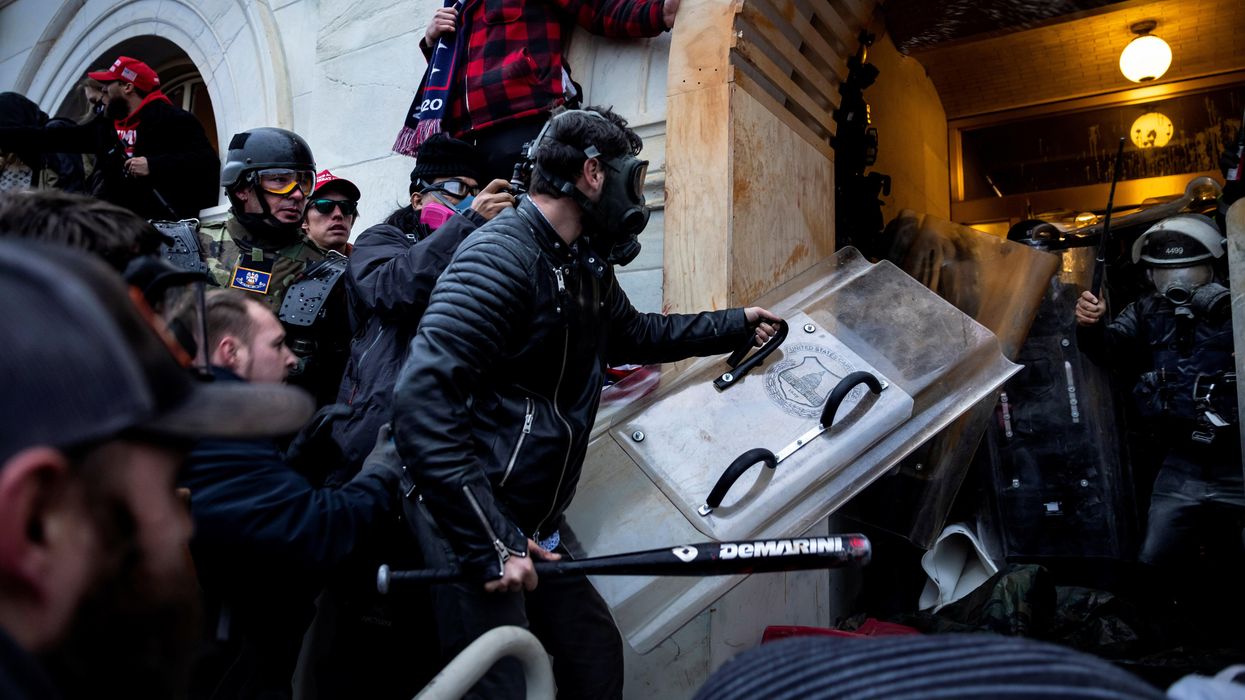Molineaux is co-publisher of The Fulcrum and president/CEO of the Bridge Alliance Education Fund.
Political polarization is nothing new. As a nation, we go through cycles of vitriol followed by relative harmony. The quest for power - the game of thrones – never ends. There is only the next play. To those playing for power, damage to innocent people not participating in the game is an acceptable cost. In the past few decades, as the power of social media has expanded, the collateral damage to individuals and society is expanding at ever increasing rates.
What happens when our democratic republic is part of the collateral damage? What happens to our republic when the conflict profiteers use networks such as Twitter, Facebook and Google to alter civic engagement for their own purposes, effectively hijacking democracy.
One new thing in our current cycle of vitriol is the prospect of a large swath of Americans deciding that democracy is too hard and not worth it. If you are under 30 years old, chances are good that you’ve never seen a functioning U.S. government. Beginning in the 1980s, the American people have turned against their own government for many different reasons: over-regulation, corruption, anti-tax sentiment, oligarchy and more.
Much of the vitriol we are now experiencing has another source, too. Conflict profiteers have figured out how to make fortunes by “stirring the pot,” recruiting followers and fleecing them of their attention and money. Add in the social media algorithms on YouTube, Facebook, Twitter, et al, and it’s easy for these conflict profiteers to build look-alike audiences and recruit even more followers. Their motives range from money to influence-peddling to king-making. Each of these profiteers will cherry-pick one or two facts, then extrapolate the story they want to tell. The story that will keep their followers “hooked.” This is why I call it "The Fleecing of America''; to deprive us not only of money but the ability to separate fact from fiction. This is the ultimate fraud, hoax and swindle as conflict profiteers claim to own the Truth.
This week’s public Jan. 6 hearings will offer us all the perfect opportunity to test our abilities to separate the truth seekers from conflict profiteers. Watch for those who react to testimony by resorting to the ad hominem attacks that are directed against the individual presenting the information as opposed to addressing the question at hand. Also, watch for those who overstate and embellish the evidence for the purpose of adding to the conflict.
Destructive agitation should be an anomaly, not a business model. Democracy is a process by which we make collective decisions. If it fails, we will have violence, chaos and more destruction.
So how do we defend our democratic republic from internal and external attacks?
We work towards changing laws and writing policies. We don’t storm the Capitol to disrupt the outcome of an election. The conflict profiteers have relied on the idea that adherence to the rule of law is optional. This is more than civil disobedience with the aim of justice. It is power-grabbing and it frightens me. If adherence to the law is optional, what dystopian future might we create?
Regarding Jan. 6, the public hearings will begin this week. These public hearings will not end the debate over what happened. They will establish a historical record. Like Watergate, this will be examined and re-examined for decades or longer.
But I wonder if, like the Watergate hearings, people will change their minds? Or, in this new era of social media and the barrage of 24/7 news channels, have we already grown weary of the entire process? And regardless of what is said and regardless of the evidence we see, have we made up our minds and just want to get on with our lives?
And so as you watch the hearing try to separate the truth seekers from the conflict profiteers. Question those who just pick out the few comments to support the story they want to tell, avoiding the preponderance of evidence. And most importantly remain true to yourself; remain open to learning new information and seeking it out with careful listening. Actively strive to broaden your horizons, and by doing so you will not become the collateral damage of the conflict profiteers.
I hope we, the American people, love our democratic republic more than we dislike our fellow Americans, with whom we disagree. Our country depends upon it.




















